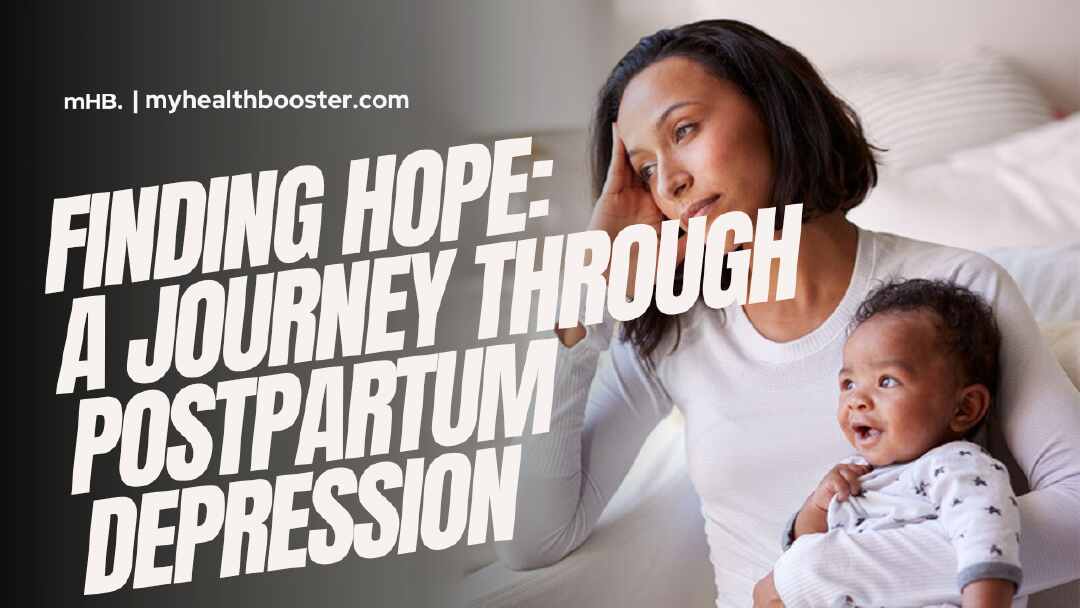Welcoming a new life into the world is often regarded as one of life’s most profound experiences. However, for some new mothers, it can also bring about a range of emotions, including an unexpected and overwhelming sense of sadness and despair. This emotional turbulence is known as postpartum depression (PPD), a condition that affects not only the mother but also her family. In this article, we’ll delve into what postpartum depression is, its signs, causes, and the different types of PPD.
What is Postpartum Depression (PPD)?
Postpartum depression, also referred to as postnatal depression, is a form of clinical depression that occurs after childbirth. It goes beyond the commonly experienced “baby blues,” which are characterized by mild mood swings, anxiety, and sadness that typically resolve within a week or two. PPD, on the other hand, is a more severe and persistent condition that can linger for months or even years if left untreated.
Signs of Postpartum Depression:
- Overwhelming Sadness: One of the hallmark signs of PPD is an intense and persistent feeling of sadness, hopelessness, or emptiness.
- Loss of Interest: Mothers with PPD may lose interest or pleasure in activities they once enjoyed.
- Fatigue: Extreme fatigue that doesn’t improve with rest is common in PPD.
- Sleep Disturbances: Changes in sleep patterns, such as insomnia or excessive sleep, can be indicators.
- Appetite Changes: Significant changes in appetite, leading to either weight loss or gain.
- Irritability: Irritability or mood swings that are more pronounced than typical “baby blues.”
- Difficulty Bonding: Mothers with PPD may struggle to bond with their newborns.
- Withdrawal: Social withdrawal or avoiding friends and family.
- Feelings of Worthlessness: Feelings of guilt or worthlessness are often experienced.
- Thoughts of Self-Harm: In severe cases, thoughts of self-harm or harming the baby may occur.
Main Causes of Postpartum Depression:
- Hormonal Fluctuations: After childbirth, there is a rapid drop in hormones like estrogen and progesterone, which can impact mood regulation.
- Biological Factors: Changes in brain chemistry may contribute to PPD.
- Psychological Factors: Preexisting mental health conditions, such as depression or anxiety, increase the risk.
- Stressful Life Events: High levels of stress, lack of support, or major life changes can trigger PPD.
- Sleep Deprivation: The sleepless nights that come with caring for a newborn can exacerbate depressive symptoms.
- Relationship Issues: Strained relationships, lack of emotional support, or conflict in the family can be contributing factors.
Three Types of Postpartum Depression:
- Postpartum Blues: This is the mildest form and often referred to as the “baby blues.” It’s a common experience characterized by mood swings, irritability, and weepiness. These symptoms typically resolve within a few weeks without treatment.
- Postpartum Depression (PPD): As described earlier, PPD is more severe and persistent. It can interfere with a mother’s ability to care for her baby and herself.
- Postpartum Psychosis: This is the most severe but rarest form of postpartum mood disorders. It involves hallucinations, delusions, and extreme agitation. Immediate medical attention is crucial for the safety of both the mother and the baby.
Recognizing the signs and understanding the causes of PPD is essential in seeking timely help and support. If you or someone you know is struggling with postpartum depression, remember that effective treatments, including therapy and medication, are available. Seeking help is a courageous step towards brighter days for both the mother and her precious newborn.
